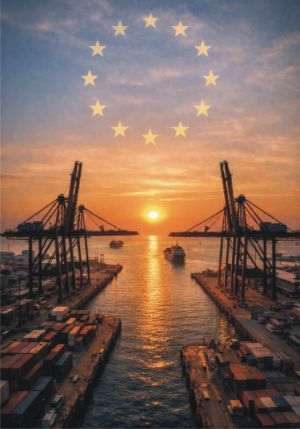Ursula von der Leyen, the president of the European Commission, will be in the public eye again on Friday, November 15, through the hearing scheduled at 9:30 local time - Luxembourg time - by the Court of the European Union in a case regarding the purchase of vaccines against -Covid 19 pending before the respective court.
The case, registered under the number T-36/23, is an action brought by Matina Stevi and the American publication The New York Times against the European Commission, through which the plaintiffs request the annulment of the Commission's decision of November 15, 2022, which refused to provide the applicants with text messages on WhatsApp between Ursula von der Leyen and Albert Bourla - CEO of the Pfizer company, during the period when the Community Executive was negotiating the preliminary agreement on the purchase of anti-Covid 19 vaccines. The main reasons invoked by the plaintiffs are: violation of the right of access to documents public, according to Regulation (EC) no. 1049/2001 and Article 11 of the Charter of Fundamental Rights of the European Union; the illegal exclusion of text messages from the category of documents accessible to the public; violation of the principle of good administration and lack of adequate motivation in rejecting the request for access to the requested information.
Friday's hearing is seen as crucial to determining the limits of transparency across the EU institutions, in a case that has captured public attention and raised concerns about transparency and accountability in the Union.
We remind you that, in the midst of the pandemic, Ursula von der Leyen held discussions with Albert Bourla, the CEO of Pfizer, to ensure a major supply of vaccines for European citizens. According to journalists from the New York Times, the exchange of text messages on WhatsApp between the two would have been decisive in negotiating the purchase of 1.8 billion doses of vaccine, equivalent to approximately four doses for each European citizen.
The issue erupted after the European Commission refused to make the text messages in question public, deeming them not to be "documents" and thus not subject to EU transparency rules. This decision provoked strong reactions, and in 2023 The New York Times newspaper initiated a lawsuit against the Commission at the European Court of Justice, alleging that it had violated European transparency law.
According to the investigative website Follow The Money (FTM), Nicole Taylor, a spokeswoman for The New York Times, emphasized the importance of this trial, saying that the case raises critical questions about democratic oversight in the European Union and public access to intelligence. major interest. In his view, the public continues to be deprived of important details about the negotiated terms of one of the largest procurement contracts in EU history, which has raised suspicions about how the Commission manages transparency and accountability within the Union.
Following the hearing, EU judges will have to decide whether the European Commission's refusal to share the text messages is a breach of basic EU law on transparency and good administration. A final decision is not expected until next year, but its implications could be profound. If the court decides in favor of The New York Times publication, the verdict could create an important precedent for transparency at the level of the European Union, according to the legal expert Ilaria Fevola, according to the cited source (FTM), from the NGO "Article 19" , which campaigns for freedom of information. Such a decision could highlight the shortcomings of Regulation 1049, which defines the right of public access to European Union documents but does not explicitly include text messages or other modern forms of digital communication.
In the long run, a favorable New York Times verdict could change current regulations to include text messages in the scope of official documents. Such a reform could bring the EU in line with countries such as Sweden, Finland and the Netherlands, where access to government officials' text messages is regulated and publicly available.
We mention that the European ombudsman, Emily O'Reilly, has also launched an extensive investigation into the practices of the EU institutions regarding the archiving of text messages. In its conclusions, it recommended that officials record and preserve relevant information, regardless of medium, and suggested the use of appropriate technologies to facilitate this archiving.
























































